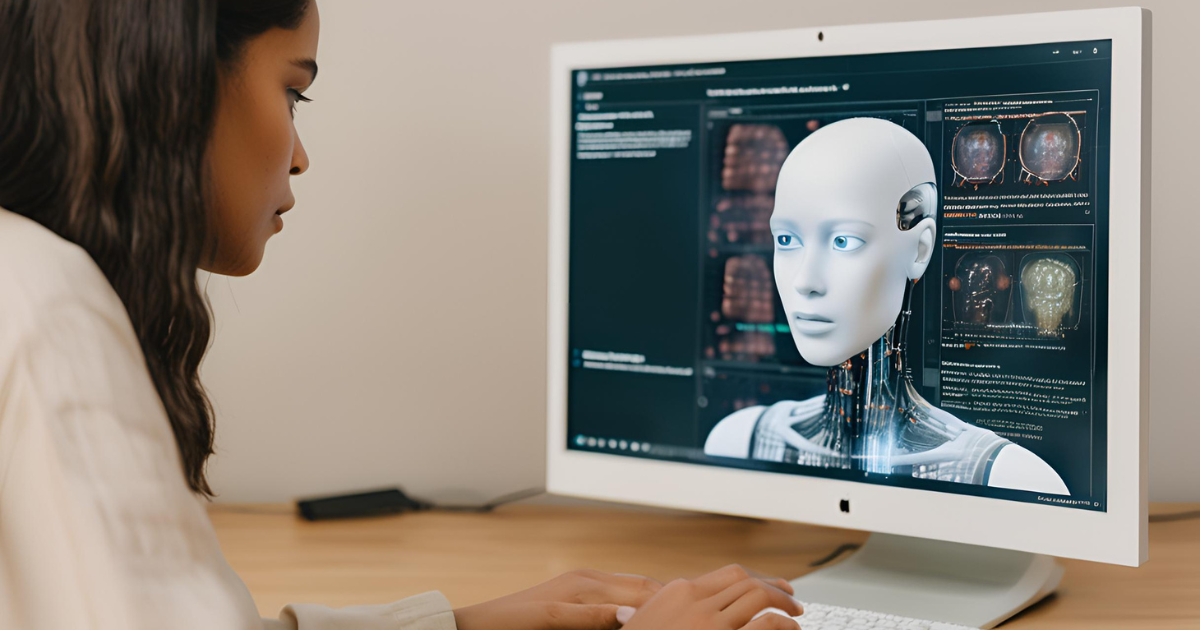Artificial Intelligence (AI) technology is emerging as a potential solution to the global loneliness epidemic. With millions of people worldwide experiencing chronic loneliness, AI companions are being developed to offer emotional support and companionship, potentially transforming the way we address social isolation.
The Loneliness Epidemic
Loneliness is a significant public health issue, affecting millions globally. In the UK, around 3.8 million people suffer from chronic loneliness, while a Harvard study found that 36% of US adults, including 61% of young adults, experience profound loneliness. The health consequences are severe, with loneliness linked to increased risks of premature death, cardiovascular disease, dementia, stroke, depression, and anxiety.
Also Read: Google unveils Gemini 1.5 Pro with groundbreaking AI features
AI Companionship: A New Frontier
Professor Tony Prescott from the University of Sheffield is a leading advocate for AI companionship. In his book, “The Psychology of Artificial Intelligence,” Prescott argues that AI can provide valuable social interaction for lonely individuals. He suggests that AI companions could help break the cycle of isolation and low self-esteem by offering stimulating and personalised social interactions.
Benefits of AI Companions
AI companions are designed to provide emotional support and companionship during moments of solitude. These AI systems can recall past conversations, ask follow-up questions, and offer guidance without judgement. Users can share their deepest thoughts or simple musings, all met with acceptance. This non-judgemental support can empower users, helping them overcome social anxiety and encouraging them to open up about their personal experiences.
For seniors, AI companions can keep them engaged and alleviate feelings of loneliness. Some advanced AI companions can even detect health concerns and alert emergency services, providing an added layer of safety.
Also Read: Higgsfield Enters AI Video Arena, Aims to Disrupt OpenAI’s Dominance
Ethical Considerations and Challenges
While the potential benefits of AI companionship are promising, there are significant ethical concerns. Privacy and data security are paramount, as users may share personal and sensitive information with AI companions. Companies must ensure robust data protection measures and transparent policies regarding data usage.
There are also concerns about the potential for deception and the erosion of genuine human connections. Critics argue that AI companions, no matter how advanced, cannot replicate the depth and nuance of human relationships. There is a risk that individuals may become overly reliant on AI companions, leading to further social isolation and a diminished capacity for authentic human connection.
Also Read: Wokha Circle Federation’s 3rd Annual General Meeting sets future goals
Industry Developments

Several tech giants are actively developing AI companions. OpenAI’s GPT-4o, an advanced language model, has enhanced conversational capabilities, making it a potential tool for AI companionship. Google’s DeepMind is developing SIMA, an AI companion for video games, designed to offer a collaborative and personalised gaming experience.
Anthropic, backed by Google and Amazon, has developed Claude, an AI system guided by a set of moral values outlined in its “AI constitution.” This approach aims to create a safe and reliable AI system by ensuring that its responses align with ethical and moral considerations.
Real-Life Applications
AI companions are already making a difference in people’s lives. For example, Replika, an AI chatbot, has been downloaded millions of times and is used by individuals seeking companionship. Research conducted by Stanford University on Replika users revealed that the AI chatbot had prevented some individuals from contemplating suicide, highlighting its potential benefits.
However, there are also concerns about the potential for users to become addicted to their AI companions. Prolonged interaction with AI friends could lead to a decrease in empathy and an increase in selfishness. Additionally, the corporate dominance of the AI friend marketplace raises concerns about the long-term intentions of these companies.
Also Read: Skill development workshop in Zunheboto to tackle unemployment crisis
The Future of AI Companionship
As AI technology continues to evolve, the potential for AI companionship to alleviate loneliness will likely become more pronounced. The integration of AI companions with emerging technologies, such as virtual reality (VR) and augmented reality (AR), could further enhance the sense of presence and immersion, offering a more realistic and engaging experience.
However, it is crucial to approach the development and implementation of AI companionship with caution and responsibility. While AI companions may offer a valuable supplement to human connections, they should not be viewed as a complete substitute for authentic human relationships. The pursuit of AI companionship must be balanced with efforts to foster and strengthen genuine human connections within communities.
Conclusion
AI companionship presents a promising avenue for providing emotional support and alleviating social isolation. As technology companies continue to push the boundaries of AI capabilities, the potential for AI companions to offer personalised, accessible, and non-judgemental support becomes increasingly tangible.
However, the development and deployment of AI companions must be guided by ethical principles and informed by interdisciplinary collaborations. By addressing concerns related to privacy, deception, and the erosion of human connections, we can harness the power of AI to enhance human well-being while preserving the sanctity of authentic human relationships.
Ultimately, the future of AI companionship lies in striking a delicate balance between technological innovation and ethical responsibility, ensuring that these systems serve as a supplement to human connections rather than a replacement for them.




